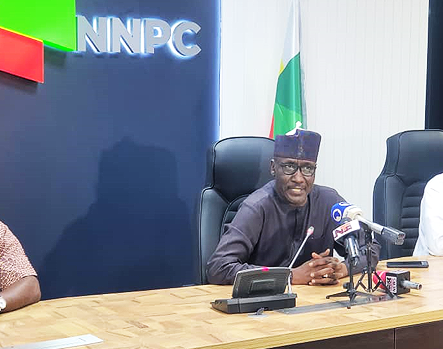
The Nigerian National Petroleum Company Limited has announced that it has destroyed a total of 10,166 illegal refineries and crude oil connections in Nigeria since 2021. Specifically, over 5,686 illegal refinery sites were demolished, and 4,480 illegal crude oil connections were eliminated during this period.
Mele Kyari, the Group Chief Executive Officer of NNPCL, revealed these figures during the 2024 Faculty Lecture titled, “Energy Security, Sustainability and Profitability in Nigeria: Advances, Challenges and Opportunities.” This lecture was organized by the Faculty of Science at the Obafemi Awolowo University in Ile-Ife, Osun State.
Kyari discussed the challenges posed by pipeline vandalism and crude oil theft in Nigeria. He highlighted the adverse impact of these issues on NNPCL’s operations but also noted that the establishment of a command-and-control center had helped in detecting and destroying illegal refinery sites and removing illegal connections. Kyari emphasized the importance of collaboration between the academia and the oil and gas industry to address the challenges of energy sufficiency and sustainability.
He also identified energy conservation, diversification, and efficiency measures as major avenues for enhancing energy security. Kyari underscored the intensified competition for vital resources and urbanization drive, which would lead to a doubling of Nigeria’s energy demand by 2050.
Additionally, Kyari mentioned NNPCL’s strategic shift towards increased product trucking and storage in underground tanks at NNPC filling stations nationwide. He highlighted the company’s expanded retail assets, making it the largest single downstream company in sub-Saharan Africa after acquiring OVH retail stations and associated downstream infrastructure in 2021.
Furthermore, Kyari mentioned that the national oil firm had transformed into a fully commercial limited liability energy company following the passage of the Petroleum Industry Act in 2021. He also stated that the removal of fuel subsidies had allowed the company to play a more active commercial role, ensuring profitability and delivering greater value to Nigeria’s growing population.
